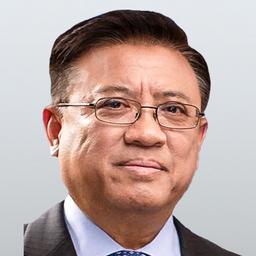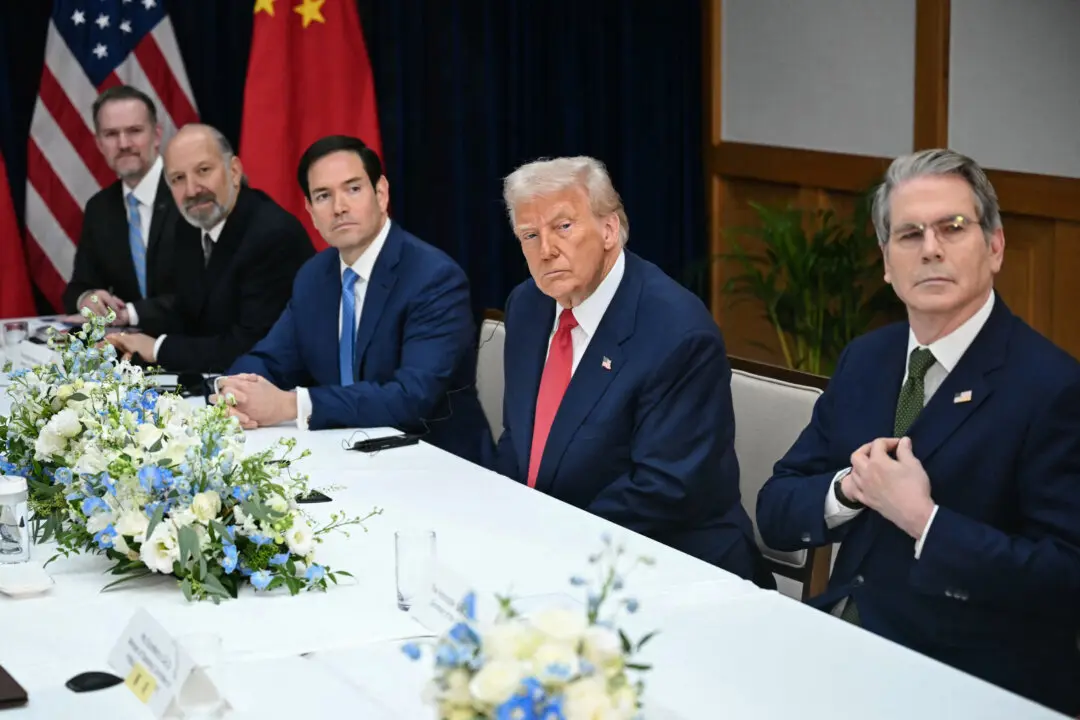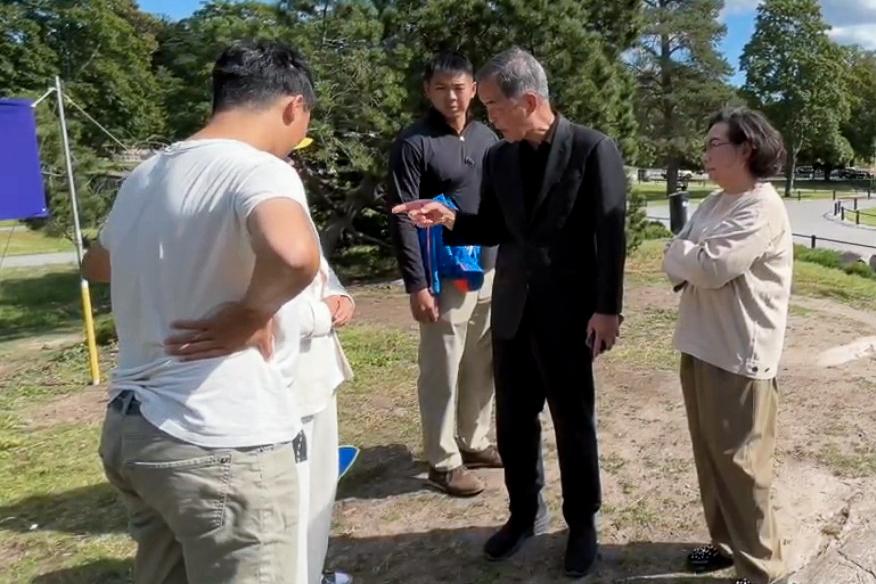On June 21, in a courtroom on a hill overlooking Dalian City, Liaoning Province, in northeastern China, 13 practitioners of the Falun Gong spiritual discipline were tried. Their crime was said to be the installation of satellite TV receivers used by residents for watching the independent, New York-based New Tang Dynasty (NTD) Television.
This has been the largest trial of its kind. Twelve lawyers gathered there to defend the Falun Gong practitioners. The trial lasted 12 hours and adjourned only when lawyers protested that the health of three of their clients was too poor to continue. The next trial date has yet to be announced.
That was a long court session. Compare the trial of former Railroad Minister Liu Zhijun, which involved millions of dollars in corruption charges but only lasted three and one-half hours.
Originally this trial had been scheduled for April 12 at another court in Dalian, but 12 hours beforehand, a phone call from the court notified the lawyers the trial had been postponed. The lawyers still went to the court to get a formal explanation.
Family members of the accused and other Falun Gong practitioners also went to the court. The police detained 56 of them and two of the lawyers. One of the lawyers, Cheng Hai from Beijing, was beaten by the police.
This affair began on July 6, 2012, when the Dalian security force, under the orders of the Political and Legal Affairs Committee (PLAC) of the Dalian Chinese Communist Party (CCP) Committee, seized 79 Falun Gong practitioners for installing NTD receivers. More than 10 practitioners were sent to forced-labor camp. This case has already caused two deaths—a Falun Gong practitioner and a family member.
This case has not been easy for the lawyers who entered a plea of not guilty for their clients. A not-guilty plea is not allowed in Falun Gong cases.
The law licenses of some of the lawyers were not renewed this year until the last minute. The annual renewal of law licenses is how the CCP manipulates the system. The lawyers who take the “sensitive cases,” including Falun Gong cases, are given a hard time.
However, the regime has also run into difficulty. According to someone who attended the trial, one of the three local lawyers who had intended to enter a guilty plea reversed himself, entering a not-guilty plea instead. He had been inspired and encouraged by the human rights defense lawyers, most of them from Beijing.
Hot Potato
For the authorities, this trial has been a hot potato from the beginning. The arrests were made at the peak of the Wang Lijun-Bo Xilai scandal. That the arrests were made in Liaoning was probably not an accident.
Both disgraced former Politburo member Bo Xilai and his Chongqing police chief, Wang Lijun, were from Liaoning. Bo headed the Dalian CCP Committee before he was promoted to Liaoning governor. Even though Bo left Liaoning many years ago, there are still many officials there who owe their power and wealth to him.
Since February 2012, when Wang Lijun fled for his life from Bo Xilai’s Chongqing to the U.S. Consulate in Chengdu, NTD has intensively reported on the Wang-Bo scandal. The number of visitors from mainland China to the websites of NTD and the Epoch Times skyrocketed.
There is no way to tell how many more people in mainland China began watching NTD via satellite due to the Wang-Bo coverage, but the rise in the Internet viewership provides a hint. Just thinking about it would have been enough to disturb the sleep of some officials in Dalian and Liaoning.
Even though the Bo Xilai scandal was not fully exposed (and still has not been), different sources pointed to Zhou Yongkong as being Bo Xilai’s partner in planning a coup. Zhou was the head of the Central Committee’s PLAC and a member of the Politburo Standing Committee. He was also the main beneficiary of persecuting Falun Gong and the “maintaining stability” policy.
In July 2012, when the arrests of the Falun Gong practitioners were made, he and his PLAC were eager to prove their importance by making some trouble.
Satellite Regulations
Since then, there have been some changes. A new CCP leadership took charge in March, 2013. Zhou Yongkang retired in November 2012. His PLAC has lost its power, and the PLAC head no longer has a place on the Standing Committee.
Wang Lijun, once a role model for Chinese police forces, is serving a jail term. The notorious Re-education Though Labor (RTL) system is said to be undergoing a silent reform.
There has been no loosening of the policies of persecution, but these changes, such as they are, have had an impact. The security authorities used to have endless resources and formidable power. Now many of them are looking to keep open a way to escape.
The trial of the practitioners for installing satellite dishes has been affected. Sources on the inside have said the case can’t be decided in Dalian. Even the Liaoning authorities don’t know how to handle the case. It probably will be decided in Beijing. No wonder the Beijing Justice Bureau sent some officials to watch the trial.
The prosecution’s case has a weakness that would be fatal in most of the world’s courtrooms: There is no legal basis for charging the defendants. The legislative body, the National People’s Congress or its Standing Committee, has never passed a law prohibiting people from receiving a satellite TV signal.
The State Council issued the Regulation on Satellite Television Ground Receiving Apparatus Management. In most cases, State Council or departmental regulations must be based on laws. That is why the regulations always put the relevant laws in their prefaces or introductory paragraphs. However, this regulation on satellite dishes doesn’t cite any law.
Besides, the State Council’s regulation did not regulate anything—it only stated principles. The State Administration of Radio Film and Television of China (SARFT) needed to issue two of its own regulations to implement the State Council’s regulation.
SARFT’s regulations, which are filled with exceptions, have caused many controversies. For instance, foreigners, even people from Hong Kong, Macao, and Taiwan, are allowed to watch satellite TV programs from foreign TV stations. This privilege is said to discriminate against mainland Chinese.
The Real Charge
Even though the prosecutor and the court focused on the installation of satellite dishes, the charge was totally different. The charge was Article 300 of the Criminal Code: Using a heretical cult to undermine the implementation of law.
This charge has been used in most of the Falun Gong-related cases. No matter what the situation has been, one charge fits all. Still, how can anyone “undermine the implementation of law” when there is no such law to undermine?
In any case, practicing Falun Gong has never been legally banned in China. The persecution of Falun Gong in China is a political campaign, not a matter of law enforcement.
But the trial of the Dalian 13 is not difficult because it involves Falun Gong. Falun Gong practitioners are tried in Chinese courtrooms all too regularly.
The new leadership, like its predecessors, wants credit for changes it is not capable of making. For instance, even while the regime is said to be reforming the labor-camp system, court trials and prison sentences have dramatically increased. This “reform” seems to be an elaborate sleight of hand.
The filmmaker Du Bin called attention to the reality of the labor camps, exposing Masanjia Labor Camp’s torture and inhumane treatment of women. He has been detained for “picking quarrels and making trouble.”
In trying these practitioners in Dalian, the regime is in effect saying to the Chinese public: We can’t let you watch TV that reports honestly about Wang Lijun or Bo Xilai or a great many other things. This is why Beijing must decide the practitioners’ fate.
What does the regime most fear? The truth. That is what the Dalian trial is all about.





